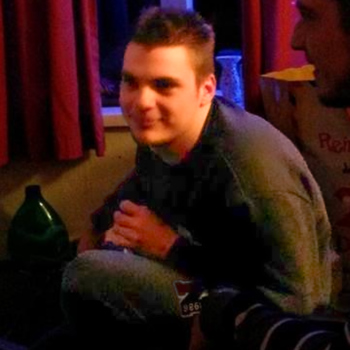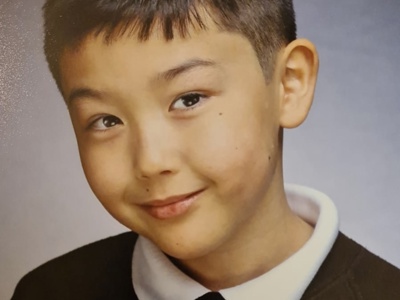
Inquest finds neglect contributed to the death of 31-year-old man who took his own life hours after being discharged by hospital mental health team
Jamie Harding, of Essex, died on 4 June 2022 when he deliberately fell from the fifth-floor window of his brother’s flat. An inquest into his death has concluded that there were a series of “significant and repeated failures” on the part of Essex Partnership NHS Foundation Trust (‘EPUT’) in the six months preceding his death, along with an “inadequate” assessment performed of him at Basildon Hospital a few hours before he died.
Posted on 19 April 2024
Concluding the five-day inquest, the Area Coroner for Essex, Sean Horstead, found that a series of failures and missed opportunities by EPUT and its employees “amounted to a gross failure to provide Jamie with basic medical care” and that “neglect directly and more than minimally contributed to Jamie’s death.”
The coroner added that an assessment of Jamie carried out by a mental health practitioner at the hospital was “inadequate and failed to recognise or appropriately act upon relevant information available”.
Jamie had a longstanding history of mental health difficulties and issues with substance misuse. He first became known to EPUT in 2017 when he was accepted by the Essex Support and Treatment for Early Psychosis Service, which prescribed Jamie with anti-psychotic medication and allocated him a care coordinator.

Jamie Harding
The inquest heard evidence that Jamie had engaged relatively well with his care plan and was reporting improvements in his symptoms. However, he began to disengage with services in 2019, which appears to have coincided with the replacement of his care coordinator. He was discharged from EPUT services in November 2020. Jamie’s GP continued to prescribe anti-psychotic medication.
Two urgent GP referrals were made to EPUT on 18 November 2021 and 30 November 2021 requesting an urgent review of Jamie, as he was hearing voices, experiencing paranoia, and reporting that his medication was not working. His mother, Carolyn Claydon, also contacted EPUT directly.
On 18 January 2022, Jamie was assessed by EPUT’s First Response Team via telephone. Jamie described his symptoms, reported that he was binge drinking, and requested different medication. A plan was put in please for Jamie to self-refer to a drug an alcohol service, and for his case to be discussed in a Multi-Disciplinary Team meeting (‘MDT’).
HM Area Coroner for Essex, Sean Horstead, found that in the six months that followed this assessment, there were a series of significant and repeated failures on the part of EPUT employees, together with inadequacies in the systems of operation of EPUT’s First Response Team, that contributed to Jamie’s death. Those failures included:
- A serious failure to adequately follow up the plan identified in the assessment, which led directly to a failure to conduct a full MDT meeting. As a consequence of this, the coroner considered that there was a significant missed opportunity to allocate a care coordinator to Jamie, and a missed opportunity to involve EPUT’s Dual Diagnosis Service in his care. The Coroner also found that there was a serious missed opportunity to develop and update an appropriate care plan for Jamie and undertake regular risk assessments regarding self-harm and suicide.
- A failure to undertake an urgent medication review, despite repeated requests for the same from GPs, Jamie himself, and Carolyn. The inquest heard evidence that an email was sent to a consultant psychiatrist requesting medication review on 6 March 2022, but this was never responded to. Another email prompted by a further urgent GP referral on 16 May 2022 was responded to, but the psychiatrist declined to undertake a review of Jamie.
The coroner found that: “The cumulative effect of these failures amounted to a gross failure to provide Jamie with basic medical care at a time that his condition clearly required it. In this respect, neglect directly and more than minimally contributed to Jamie’s death.”
On 3 June 2022, Carolyn called an ambulance as Jamie’s symptoms had got worse. When Jamie arrived at Basildon Hospital A&E, he was assessed by a doctor who noted that Jamie gave a mood score of 0/10, reported a history of deliberate self-harm that was visible on his limbs, had not slept for 3 days, and felt suicidal. The doctor’s impression of Jamie was ‘depression with suicidal ideation’ and he was referred to the Mental Health Liaison Team for assessment.
The evidence of the MHLT practitioner who carried out the assessment of Jamie was that Jamie reported hearing voices, but both Jamie and Carolyn denied that he was having suicidal thoughts, and they agreed that voluntary admission to the mental heath unit would not be beneficial to him. The practitioner’s evidence was that Carolyn agreed that she would be able to keep Jamie safe at home overnight, and he therefore discharged him with a plan for the Home Treatment Team to visit him in the morning.
Carolyn’s account of the assessment was at direct odds with the practitioner’s evidence in many respects. Carolyn’s evidence was that both she and Jamie wanted him to be admitted and this was the very reason the ambulance had been called. Carolyn’s evidence was also that neither she or Jamie denied that he was suicidal, and while she may have said that she would have tried to keep Jamie safe at home, this was only after the practitioner said that there were no beds available.
Jamie took his own life in the early hours of 4 June 2022, within a few hours of his discharge.
At the Pre-Inquest Review Hearing stage, the coroner held that a breach of the operational duty under Article 2 (i.e. that the state knew or ought to have known that there was a real and immediate risk to life and failed to take steps to mitigate the risk) remained at least arguable, pending the opportunity to test the evidence of both Carolyn and the MHLT practitioner at the inquest.
Having heard the evidence, the coroner preferred the evidence of Carolyn “without hesitation” on all relevant aspects and ruled that Article 2 remained engaged.
The Coroner concluded that the assessment undertaken by the MHLT practitioner was “inadequate and failed to recognise or appropriately act upon relevant information available to him including (but not limited to) information provided by Jamie’s mother regarding her son’s on-going suicidal ideation and both her and Jamie’s expressed request for him to be admitted to hospital as a voluntary in-patient as she, and he, did not feel able to keep him safe”.
The coroner found that the failure to initiate the process for Jamie’s admission constituted a “clear missed opportunity to ensure appropriate and likely effective steps were taken following the assessment to mitigate his high risk of acting upon his suicidal ideation.”
The coroner found it particularly striking that, on questioning, the MHLT practitioner said that his own view was that admission was needed, and yet did not appear to communicate this to Jamie or Carolyn.
The coroner has indicated that he will be issuing a Prevention of Future Deaths report to EPUT, the full extent of which is to be determined.
Jamie’s mother, Carolyn Claydon was represented at the inquest by Leigh Day solicitor Lily Hedgman. Counsel for Carolyn was Emily Slocombe of Old Square Chambers.
Carolyn Claydon said:
“I am relieved that the coroner’s conclusion recognises that many of the concerns I had with Jamie’s care were valid, and I am grateful for the care and sensitivity with which my own evidence was explored during the inquest.
“Jamie’s death continues to have a devastating impact on my family and I. We miss him every day, and those of us who were present when he died continue to be traumatised by what happened. While nothing can be done to change those events and bring Jamie back, I hope that EPUT takes steps to learn from the circumstances of his death so that no other lives are lost due to serious failures and missed opportunities, and no other family has to experience the pain we have.”
Leigh Day solicitor Lily Hedgman said:
“The coroner’s conclusion recognises the catalogue of individual and systemic failures in the care that was provided to Jamie, and that his tragic death and the consequent devastating impact on his family could have been avoided. The evidence heard in this inquest re-emphasises that robust systems need to be in place within mental health services to ensure that vulnerable patients in urgent need of help receive timely follow up care, and do not fall through gaps in services that may exist, particularly for those with a dual diagnosis.”

Inquest finds Mum died aged 56 of natural causes contributed to by neglect and delay in sepsis diagnosis
An inquest has concluded that there were ‘significant failures’ and missed opportunities when treating mum and grandmother Tracey Farndon, who died hours after admission to the A&E department at a Birmingham hospital.

Coroner raises serious concerns over risk of child asthma deaths following William Gray inquest
A coroner has written to the Secretary of State for Health, the Association of Ambulance Chief Executives, the East of England Ambulance Service, Mid & South Essex NHS Foundation Trust and the asthma and allergy services at Essex Partnership University NHS Trust raising serious concerns around the prevention and treatment of asthma attacks following the death of William Gray.


